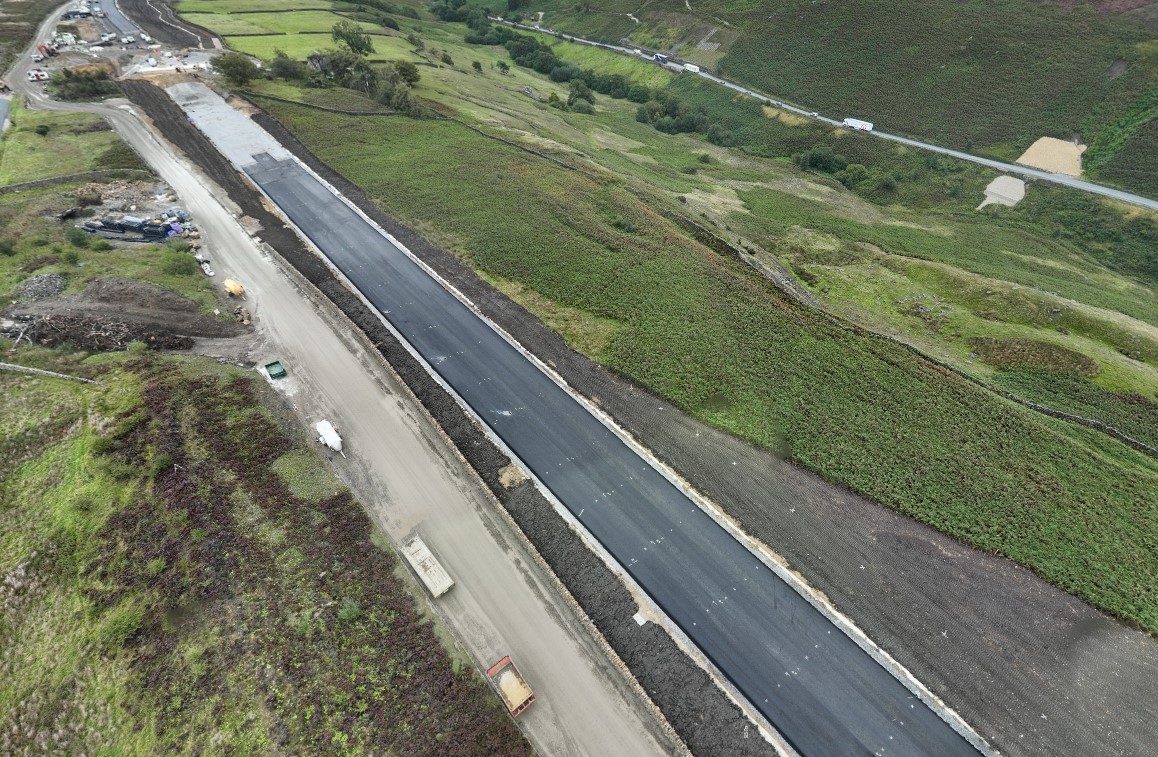A milestone has been reached on the delayed and over-budget A59 highways project, which the council says will mean the latest opening date remains on track.
The base layers of asphalt for the Kex Gill realignment scheme (Between Harrogate and Skipton) are being laid, marking a major step towards the completion of the scheme in spring next year.
Work is currently under way to bypass a section of the key east-west route near Blubberhouses, which has closed repeatedly over the years due to a series of landslips.
The road, which runs across a rural stretch of the county on the edge of the Yorkshire Dales National Park, is deemed to be one of the most important strategic routes nationally as it provides a key link running across the country. The A59 links York with the A1, Harrogate, Skipton, Preston and the M6.
Tarmac, the subcontractor to John Sisk and Son, have started to lay asphalt for the new four-kilometre section of road.
The first phase involves about 4,000 tonnes of material, with the second phase scheduled to begin next month. In total, about 40,000 tonnes is needed.
Currently, the base and structural support layers are being installed, ahead of the upper layer in spring, to pave the way of its planned reopening.
The recent dry weather has allowed construction to progress at pace, including building culverts under the new road, constructing a retaining wall, installing drainage and creating a new bridleway.
North Yorkshire Council’s executive member for highways and transport, Councillor Malcolm Taylor, said: “This is a milestone moment in the Kex Gill realignment project which is key to safeguarding the future of the A59.
“The realignment of this east-west route will provide much better connectivity for all road users and will provide a major boost to the county’s economy.
“Work continues on the new structures, drainage and surfacing to ensure that the opening remains on track for next spring.”
There have been 15 landslips on the stretch of road since 2000 which have caused significant disruption for the public and cost us more than £6 million to repair.
In May, the executive approved an extra £11.7 million of investment to cover the costs of design changes and additional work, with the budget now standing at £82.5 million.
It was originally budgeted to cost £68.8m, with an extra £2m previously approved by councillors.












